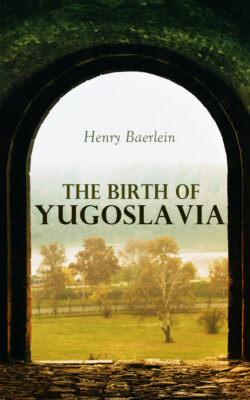Читать книгу The Birth of Yugoslavia - Henry Baerlein - Страница 28
На сайте Литреса книга снята с продажи.
METHODS OF THE TURK
ОглавлениеAfter the Turk had made himself master of Bosnia and Herzegovina he enrolled among his janissaries 30,000 of the young men, and in other parts of Yugoslavia showed himself inclined at first to permit the people to follow their own traditions, their religion,[22] their language and their customs, so long as he was maintained in luxury and so long as a sufficient supply of young men was forthcoming. The abominable acts of cruelty, by which he is now remembered in the Balkans, appear to have started at a later period, when he had himself degenerated, when his lawless soldiery provoked the people, when the people rose and he suppressed them in a manner that would make them hesitate to rise again. But from the first he saw to it that there should be recruits; many a young Slav taken early from his home was transformed at Constantinople into a redoubtable janissary who fought against Europeans; these troops, who were not allowed to marry, gave an absolute obedience. They were perhaps the finest infantry in the world—for two hundred years they formed the strongest prop of the Turkish Empire. Paulus Jovius, the historian, says that in 1531 nearly the whole corps of janissaries spoke Slav. Other young men were received into the Government offices—the Porte, until the end of the seventeenth century, used the Serbian language for its international transactions; its treaties with the Holy Roman Empire, for example, were all made out in Serbian and Greek. Finally there were not wanting Southern Slavs who rose to high distinction in the Sultan's service, such as Mehemet Sokolović, who, after being thrice pasha of Bosnia, was elevated to the post of grand vizier; Achmet Pasha Herzegović (son of the last chief of Herzegovina), whose conversion was followed by an appointment as Bey of Anatolia; he became brother-in-law of Sultan Bajazet ii. and likewise grand vizier. There was Sinan Pasha, a Bosnian, who constructed in Čajnica, his native place, the handsome mosque that still exists, and there was the renowned Osman Pasvantoölu Pasha, also of Bosnian origin, who appeared in 1794 outside the historic fortress called Baba Vida (Grandmother Vida), of the dusty, old rambling town of Vidin on the Danube. Having won his way into the fortress he was elected governor, and a year later he became Pasha. His independence was remarkable even at a period when Mahmud Bushatli Pasha flourished at Scutari and Ali Pasha at Jannina, so that Lamartine described Turkey in Europe as "une confédération d'anarchies." Pasvantoölu coined his own money, and, amongst other exploits, placed on the outside of a mosque his own monogram instead of the Caliph's emblem. Therefore the outraged Sultan sent against him three armies in succession, and each of them went back from Vidin vanquished. The pasha was a brave and energetic man of iron will, a great soldier and an expert architect. He built famous places of worship, whose gilded arabesques, whose fountains in the silent courts may bring us to meditate on one who died in 1807, three years after the first insurrection of his fellow-Yugoslav, Kara George. In Pasvantoölu's great library at Vidin there are one hundred and twelve books on scientific and literary matters. The Pasha was venerated and was regarded almost with dread for having managed to assemble so many volumes dealing with other than spiritual affairs.
